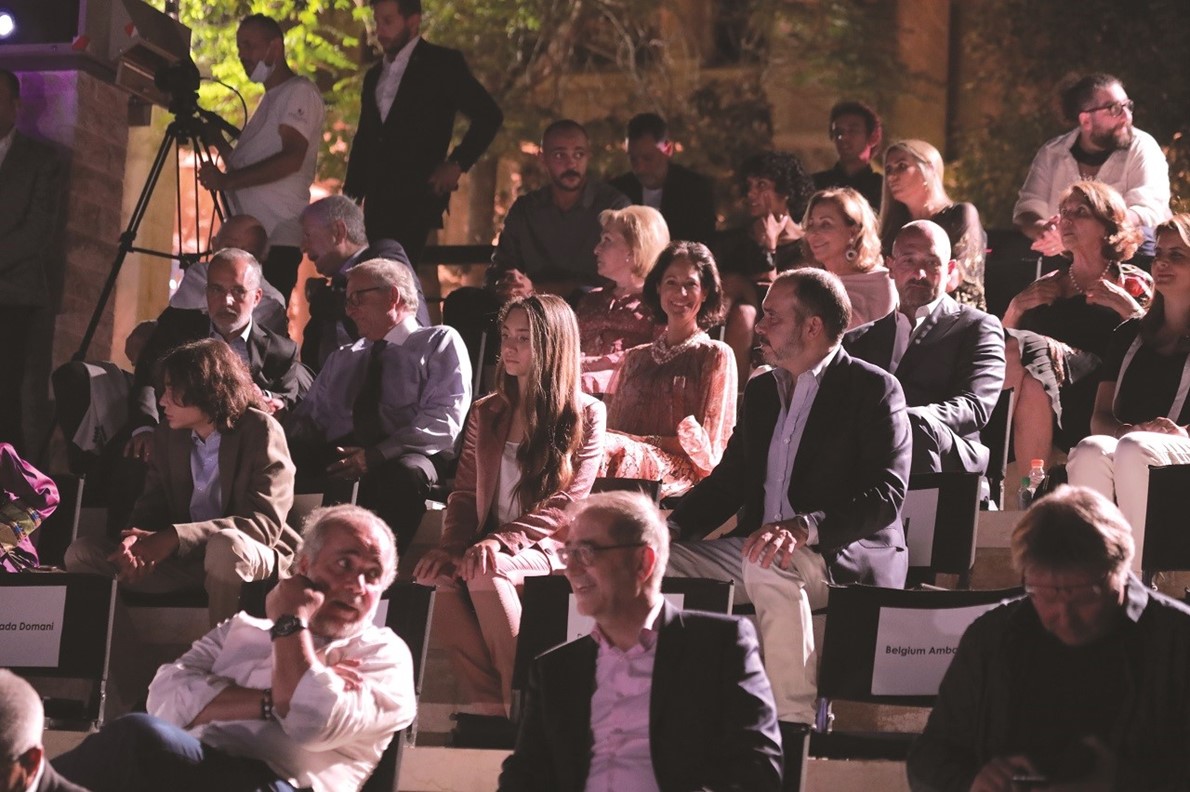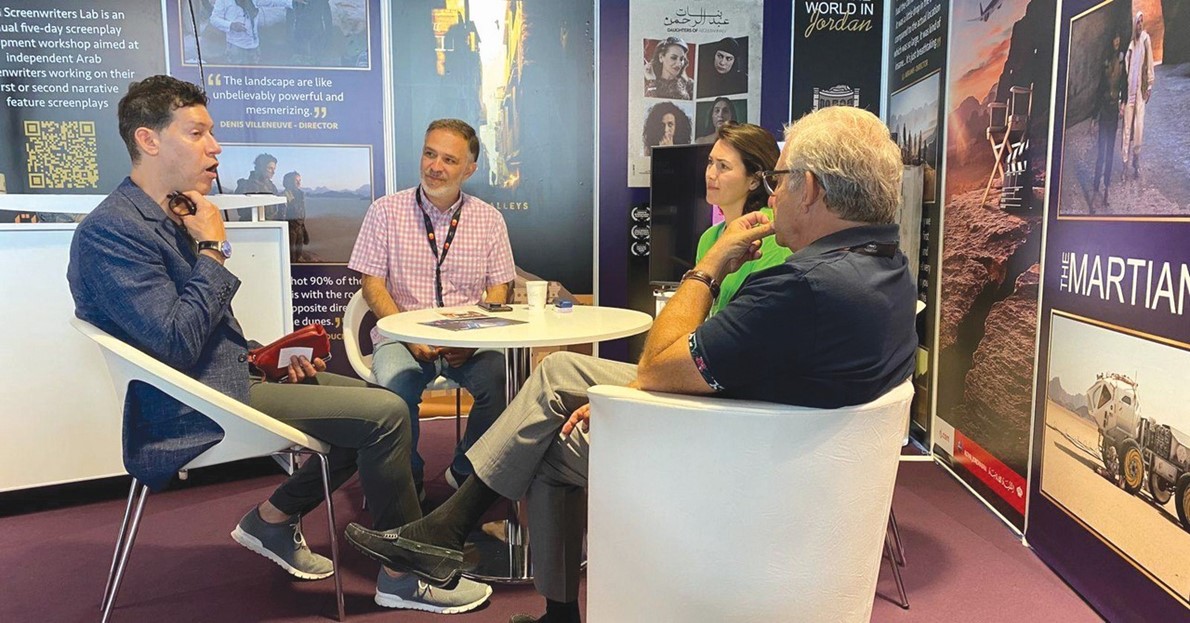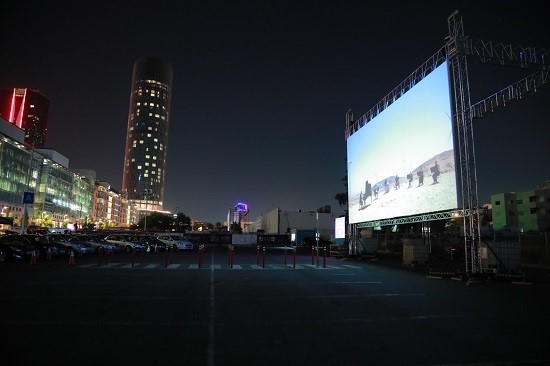The Amman International Film Festival-Awal Film (AIFF) will take place in
an expanded format in its upcoming third edition, which is scheduled to take
place between July 20 and 27, 2022.
اضافة اعلان
In its previous
edition, AIFF screened 51 films from 26 countries, and hosted 40 directors,
along with international experts, mentors, and trainers.
The expanded
format is testimony to the success of AIFF’s past editions. The festival
supports new players in filmmaking and offers fresh content.

AIFF’s president,
HRH Princess Rym Ali, said in a statement published on the festival’s website:
“We are proud of the success of the AIFF so far: it has proved, amongst other
things, that Jordan has earned its place as a cultural meeting point for
filmmakers and film buffs, where creative talents can thrive.”
There are four competitive
categories for first-time directors, actors, screenwriters, and editors to earn
distinctive awards — each complemented by the Black Iris trophy and a monetary
prize. To be eligible, films must be released in 2021 or 2022 and be Jordanian
premières.
Amman Film
Industry Days — the professional arm of the festival — will take place
alongside the screenings. AFID hosts masterclasses, workshops and three
pitching platforms: two for projects in development and one for films in
post-production. Projects are selected by juries consisting of Arab and
international film professionals to receive in-kind and cash awards.
Festival director
Nada Doumani told
Jordan News: “AIFF will have another selection of
high-quality Arab and international movies competing for the Iris Awards. In
parallel, the festival will run the Amman Film Industry Days (AFID). The
competitive sections include Arab feature-length narratives, Arab
feature-length documentaries, and Arab shorts international movies by
first-time directors. This year, we have received many very good submissions,
and hence we expect the screening program to be outstanding and to appeal to a
large audience.

“The new
activities and features this year will contribute to elevating the standard of
the festival, which has quickly become renowned in the region and beyond,
mainly for its professionalism and focus on first-time achievements.”
Supporting filmmakers
The Amman Film Market is a new tool coming to AIFF. It will represent a
space to connect filmmakers with a large wave of incoming funders, partners,
and distributors, said Doumani.
There also will be
a third pitching platform targeting only Jordanian filmmakers who are
developing their first feature-length documentary or narrative project.
A sustainable and environmentally
friendly film festival
Being conscious of
the environmental impact that accompanies any large-scale event, AIFF adopted a
“green approach” in its second edition.
AIFF removed its
diesel generators which were a main power source at drive-in cinemas to offset
its carbon footprint. It encouraged the use of electric vehicles, instead.
Waste and print material are being recycled and replaced with environmentally
friendly packaging. It also coordinated the planting of 674 trees around
Jordan.

To highlight the
importance of sustainability, AIFF hosted a panel called “Greening the Screen”,
which was led by specialists in the field of social and environmental impact.
Doumani assured
the continuation of their “green approach”. Steps are planned to not only
reduce their emissions, but also have a positive impact on the environment by
partnering with local environmental initiatives.
Jordanian presence at Cannes
For a 12th year, the Jordanian Pavilion attended the Cannes Film Festival
with the purpose of promoting Jordan’s various film locations.
“Since the
COVID-19 pandemic forced the world to lockdown, the festival stopped its
activities. But now with this strong comeback, the world is eager to find new
locations to produce films,” Mohannad Al- Bakri, the managing director of The
Royal Film Commission (RFC), told
Jordan News while in Cannes.
“We have received
many visitors and applications from all around the world including producers
and filmmakers who stopped at the Jordanian Pavilion in Cannes. We owe this to
the success that Jordan achieved during the lockdown when they hosted various
filming crews,” Bakri added.
Two films screened
in Cannes this year shot most of their scenes in cooperation with Jordanian
crews during the lockdown.
One of the films,
“Holy Spider,” by the Iranian-Danish director Ali Abbasi, consisted of a 90
percent Jordanian crew, Bakri said.
The film follows a
journalist’s investigation of a serial killer who targeted sex workers, as a
result of his religious quest to “cleanse” Mashhad, a city in Iran, of sinners.
Though the story
takes place in Iran, the film was shot in Jordan, where Abbasi believed
societal truths could be reflected.
The second film,
“Rebel,” directed by Adil El-Arbi and Bilall Fallah, was screened in the
Midnight Section at Cannes. Around 80 percent of the movie was shot in Jordan
and the rest in Belgium.
This film’s
associate producer, Rula Nasser, is Jordanian and utilized financial incentives
from both countries.
“International
film festivals such as Cannes and Berlin provide us with ample space to offer
Jordanian expertise and competencies that compete with neighboring Arab
countries in the field,” Bakri added.
“What changed this
year is the elevation of Jordan’s reputation. We received major global
attention. Participants and visitors of the festival know the location of the
Jordanian Pavilion.”
“There is great interaction between producers and directors
looking for new filming destinations.”
Read more Lifestyle
Jordan News








